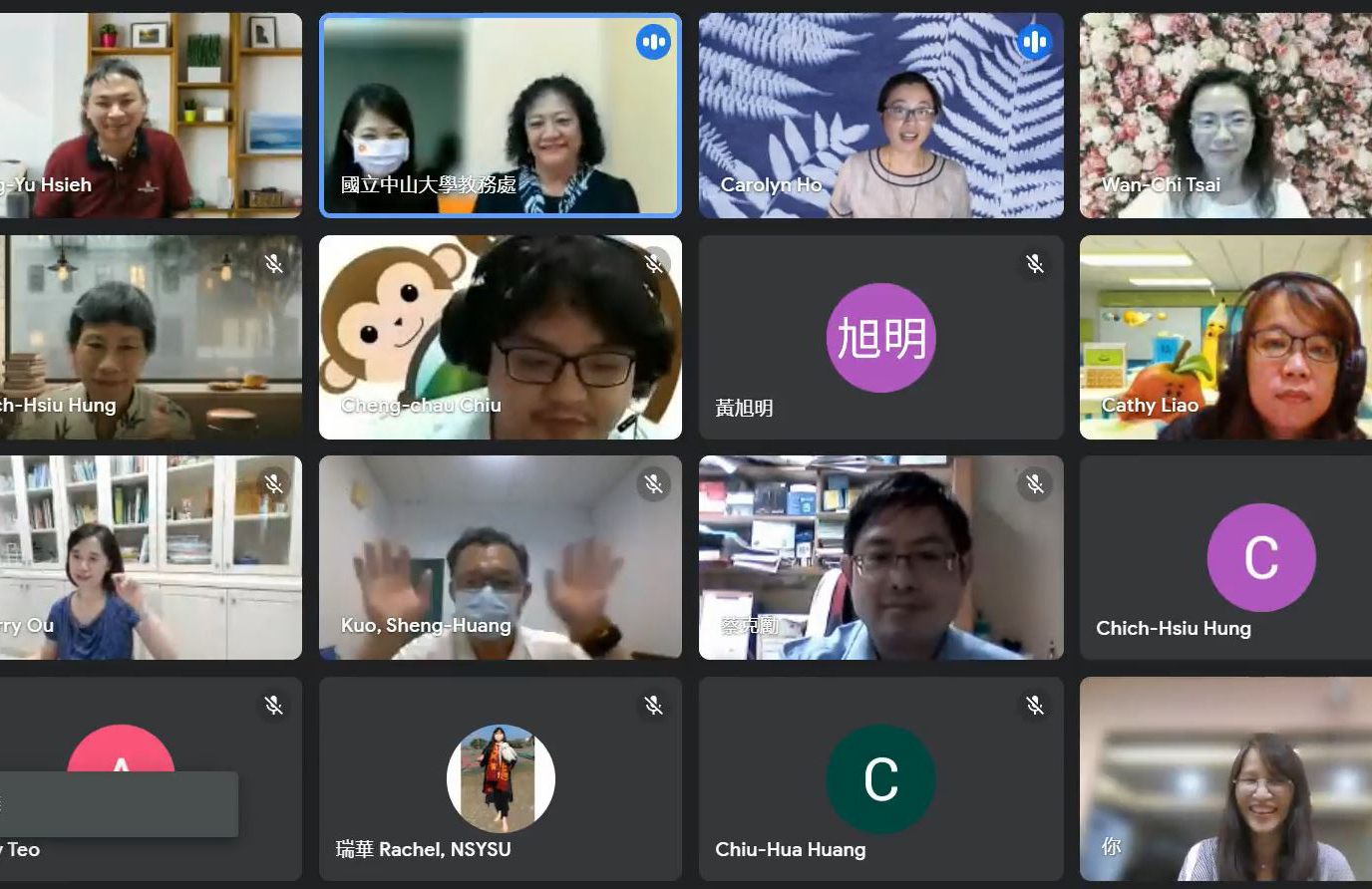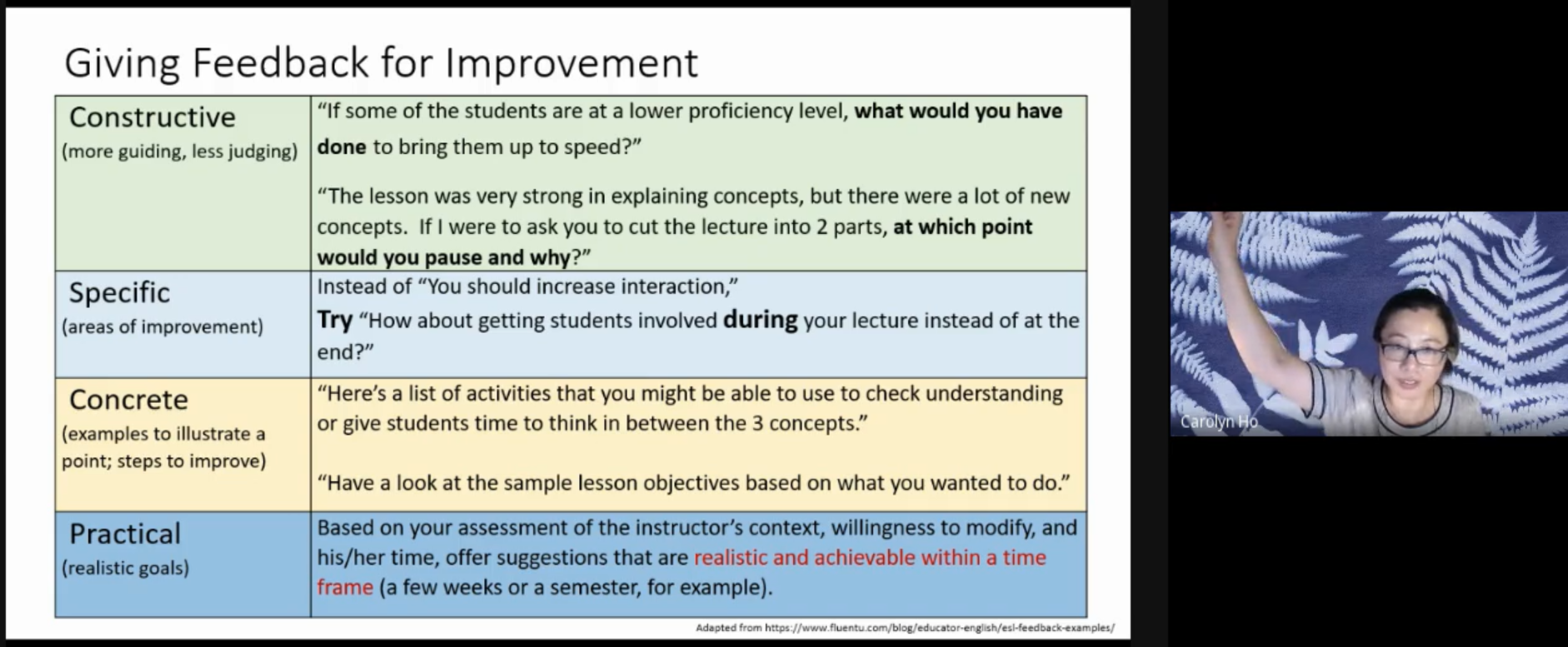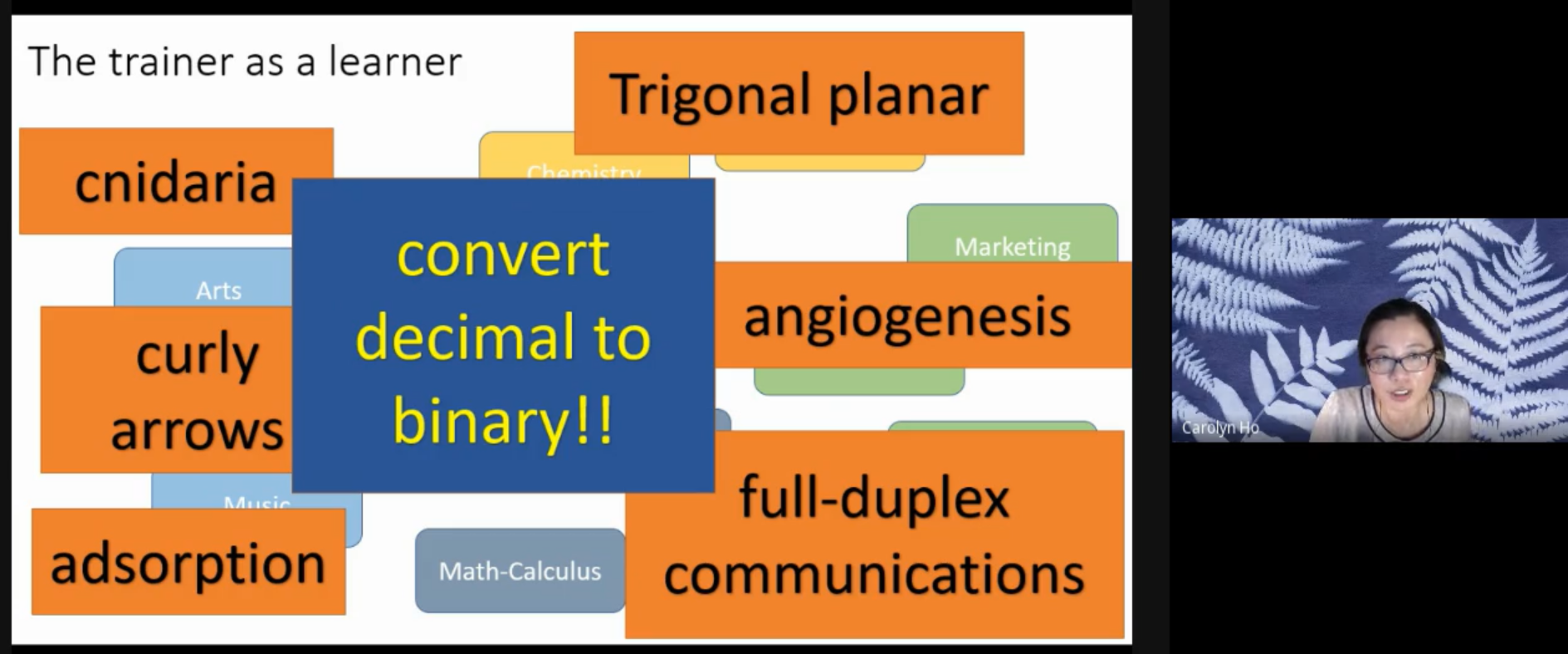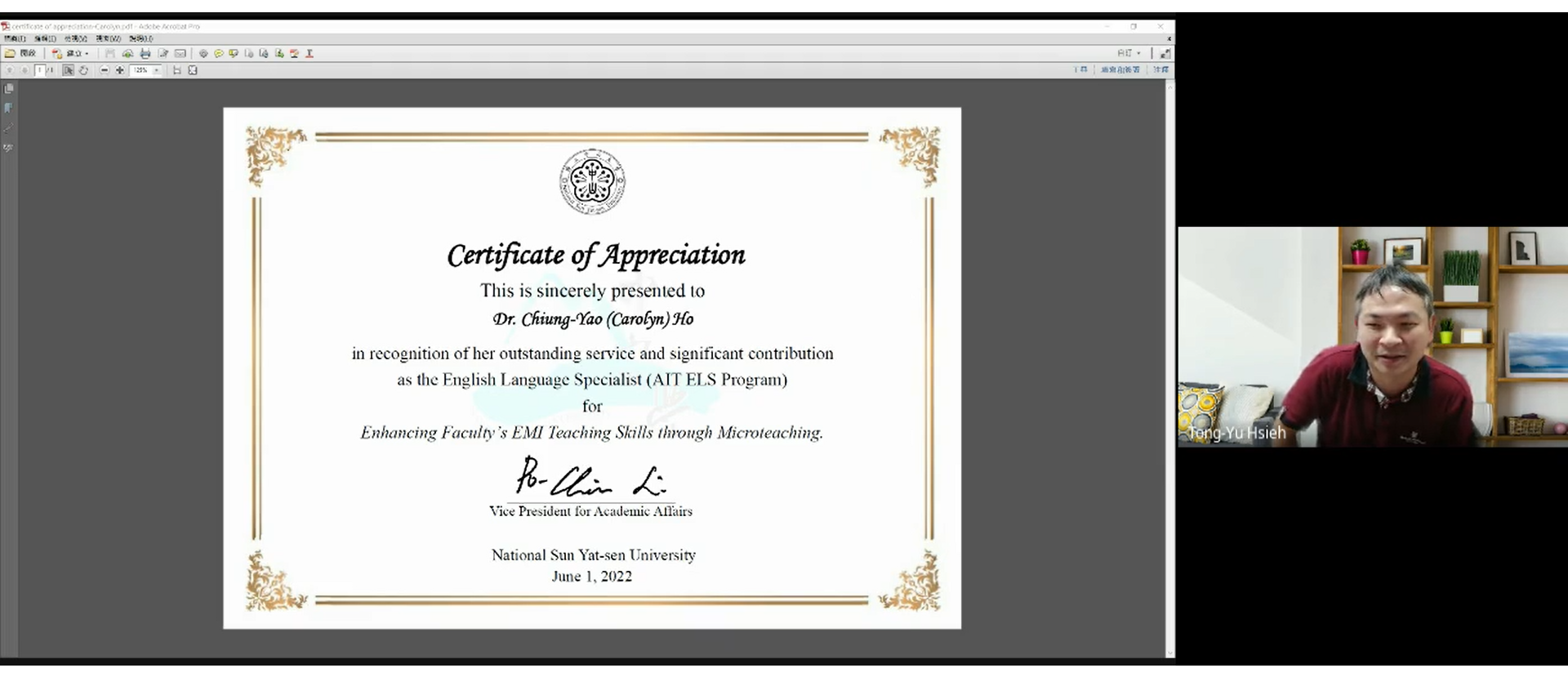Enhancing University Faculty’s EMI Teaching Skills through Microteaching




As a key cultivation university of the Program on Bilingual Education for Students in College (BEST Program) launched by the Ministry of Education (MOE), National Sun Yat-sen University (NSYSU) has worked hard on enhancing the quality of undergraduate and graduate programs and courses delivered in English. Undertaking this mission, NSYSU has been enforcing a series of training projects to promote faculty members’ English Medium Instruction (EMI) competencies and skills, one of which is Enhancing University Faculty’s EMI Teaching Skills through Microteaching.
The microteaching project offers an opportunity for teachers to present teaching demonstrations and receive valuable feedback from both the English language Specialist and fellow participants who observed the presentation. In cooperation with American Institute in Taiwan (AIT) and the US State Department, NSYSU invited Dr. Chiung-Yao (Carolyn) Ho from Long Star College, who is specialized in teaching English as a second language and has relevant experience of over 20 years, to serve as English Language Specialist of the project. In the very first meeting, Dr. Ho introduced the core concepts of EMI and provided guidance on lesson plan and common pedagogies. For the following 10 sessions, there were 3-4 instructors every week, each of whom would demonstrate a 15-minute pseudo-teaching virtually or play a pre-recorded video. During the post-observation stage, the presenters were asked to reflect on their lesson delivery with that week’s focus, fellow participants were invited to share ideas about their observation, and the Specialist served as the main trainer to provide constructive feedback and practical EMI skills and strategies to end the session.
Over the 11 weeks, there were 38 lessons given by teachers from 5 universities (including NSYSU, Kaohsiung Medical University, National Pingtung University, Feng Chia University, and Fortune Institute of Technology) in total of 32 different disciplines. To conclude the entire project, Dr. Ho recapitulated the original objectives─chastening EMI teaching skills, establishing teaching community, and nurturing hometown EMI trainers. As she observed, this project is worth establishing as a training model: presenters got their demonstrations well-prepared; observation forms were filled in by audience; self-reflection and feedback were enthusiastically given. To provide a takeaway, Dr. Ho, would like us to shift from English Medium Instruction to English Medium Learning. We should always deliberate on how to be student-centered.
For the future EMI trainers, Dr. Ho also shared her principle to perform lesson observation. She treated every chance as a formative assessment, “which meant it’s an opportunity for growth, an occasion to make progress, and an engine for excellence.” She suggested, when observing a lesson, we make clear what misses the marks, and that we encourage and give a chance of self-correction. When giving feedback, we can put these merits in mind: 1) be constructive─provide more guiding and less judging; 2) be specific─about the areas of improvement; 3) be concrete─give examples (sample lessons, list of designed activities) to illustrate the point; 4) be practical─offer suggestions that are realistic (achievable with a time frame, for instance.) Finally, Dr. Ho expressed her appreciation for participants’ “collective effort, intellectual curiosity, diverse approaches, and amazing ingenuity,” and also offered her special thanks for the organization and engagement by NSYSU, MOE, AIT, and the US State in improving the quality of EMI instruction.
In the 111 Academic Year, we plan to initiate another 1 or 2 English Specialist Program in coopertion with AIT to furthur cultivate faculty’s EMI-related knowledge and competencies. More information will be announced on our websites of BEST Program and Southern Regional Resource Center for Bilingual Education when details are confirmed. Faculty of NSYSU and regional partner universities and from nationwide will all be welcomed to register!
The microteaching project offers an opportunity for teachers to present teaching demonstrations and receive valuable feedback from both the English language Specialist and fellow participants who observed the presentation. In cooperation with American Institute in Taiwan (AIT) and the US State Department, NSYSU invited Dr. Chiung-Yao (Carolyn) Ho from Long Star College, who is specialized in teaching English as a second language and has relevant experience of over 20 years, to serve as English Language Specialist of the project. In the very first meeting, Dr. Ho introduced the core concepts of EMI and provided guidance on lesson plan and common pedagogies. For the following 10 sessions, there were 3-4 instructors every week, each of whom would demonstrate a 15-minute pseudo-teaching virtually or play a pre-recorded video. During the post-observation stage, the presenters were asked to reflect on their lesson delivery with that week’s focus, fellow participants were invited to share ideas about their observation, and the Specialist served as the main trainer to provide constructive feedback and practical EMI skills and strategies to end the session.
Over the 11 weeks, there were 38 lessons given by teachers from 5 universities (including NSYSU, Kaohsiung Medical University, National Pingtung University, Feng Chia University, and Fortune Institute of Technology) in total of 32 different disciplines. To conclude the entire project, Dr. Ho recapitulated the original objectives─chastening EMI teaching skills, establishing teaching community, and nurturing hometown EMI trainers. As she observed, this project is worth establishing as a training model: presenters got their demonstrations well-prepared; observation forms were filled in by audience; self-reflection and feedback were enthusiastically given. To provide a takeaway, Dr. Ho, would like us to shift from English Medium Instruction to English Medium Learning. We should always deliberate on how to be student-centered.
For the future EMI trainers, Dr. Ho also shared her principle to perform lesson observation. She treated every chance as a formative assessment, “which meant it’s an opportunity for growth, an occasion to make progress, and an engine for excellence.” She suggested, when observing a lesson, we make clear what misses the marks, and that we encourage and give a chance of self-correction. When giving feedback, we can put these merits in mind: 1) be constructive─provide more guiding and less judging; 2) be specific─about the areas of improvement; 3) be concrete─give examples (sample lessons, list of designed activities) to illustrate the point; 4) be practical─offer suggestions that are realistic (achievable with a time frame, for instance.) Finally, Dr. Ho expressed her appreciation for participants’ “collective effort, intellectual curiosity, diverse approaches, and amazing ingenuity,” and also offered her special thanks for the organization and engagement by NSYSU, MOE, AIT, and the US State in improving the quality of EMI instruction.
In the 111 Academic Year, we plan to initiate another 1 or 2 English Specialist Program in coopertion with AIT to furthur cultivate faculty’s EMI-related knowledge and competencies. More information will be announced on our websites of BEST Program and Southern Regional Resource Center for Bilingual Education when details are confirmed. Faculty of NSYSU and regional partner universities and from nationwide will all be welcomed to register!
Click Num:
Share
